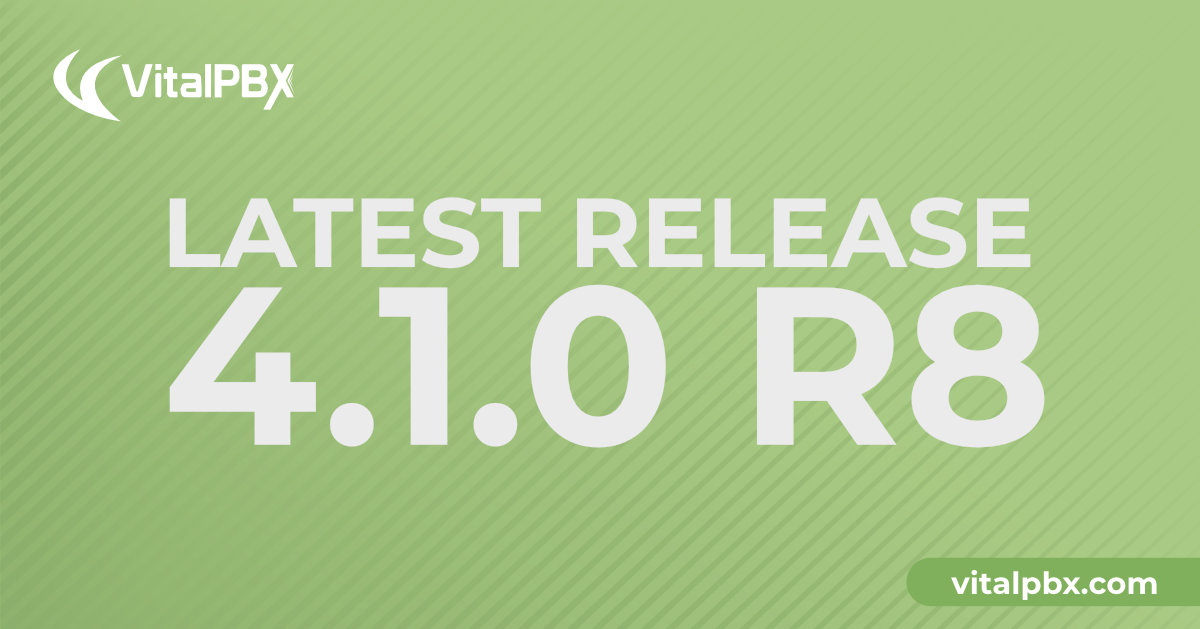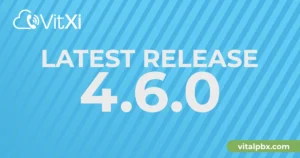We are excited to announce the latest updates to VitalPBX, packed with new features, improvements, and bug fixes. This update is designed to enhance your system’s security, optimize AI integrations, and ensure a smoother experience across different modules.
New Features
Two-Factor Authentication (2FA) per Tenant
Security remains a top priority, and we are pleased to introduce two-factor authentication (2FA) for individual tenants. Administrators can now enable 2FA in the Tenants module under the Settings tab, adding an extra layer of security for users managing multiple tenants.
OpenAI’s GPT-4o mini in AI Assistants Module
Artificial intelligence just got more powerful! The OpenAI GPT-4o mini model is now available in the AI Assistants module. This new model enhances interaction capabilities, offering smarter responses and increased efficiency in handling tasks. Whether you’re using AI for customer interactions or internal automation, this update will make it faster and more intuitive.
Voicemail Transcription with OpenAI
For Carrier Plus and VitalPBX One subscriptions, voicemail transcription is now available, powered by OpenAI. You can set up the transcription feature in the Voicemail Settings by selecting an AI API key, providing an accurate and convenient way to convert voice messages into text.
Custom Port Configuration for VitalPBX Mobile
In response to user requests, VitalPBX Mobile devices can now register with the server using a custom port. This feature can be configured in the VitalPBX Connect Settings module, giving administrators more control over connectivity options.
Bug Fixes
Hot Desking Default Language
Devices using the Hot Desking feature now correctly apply the default language set in the Language parameter of the PJSIP settings, improving user experience for non-English-speaking users.
Firewall and Let’s Encrypt Certificates
We’ve fixed an issue where the firewall was not properly enabled or disabled when renewing or creating Let’s Encrypt certificates. This fix ensures that your server remains secure when managing SSL certificates.
Expirable Queue Callbacks
Scheduled queue callbacks can now be set to expire. Administrators can define the expiration time for each callback item, ensuring that your queues remain up-to-date and free of old callback requests.
CRM Call Logging from Queues
An important fix addresses an issue where calls originating from Queues were not being saved to CRMs. This update ensures all call data is properly logged for business insights and analytics.
Extension Import Fix
We’ve resolved a bug where importing extensions with invalid headers led to an infinite loop, causing Apache to crash. This fix ensures smoother import processes and avoids downtime.
Call Recording Conversion
A bug preventing call recordings from being converted by the maintenance script has been fixed, ensuring proper archiving and conversion of call data for future access.
External Caller ID Fix
An issue where the external caller ID was incorrectly displayed when the internal CID number did not match the extension number has been addressed. This fix ensures accurate caller ID information across all calls.
Ring Group Timeout on Blind Transfers
The timeout setting for Ring Groups was incorrectly applied during blind transfers. This has been fixed, so now the timeout behaves as expected, preventing unnecessary disruptions in call routing.
Conclusion
These updates further strengthen VitalPBX’s commitment to providing a reliable, secure, and efficient communication platform.
Whether it’s advanced security measures like 2FA, AI-powered voicemail transcription, or the myriad of bug fixes, these improvements ensure that VitalPBX continues to meet the needs of businesses of all sizes.
Stay up-to-date with these new features and fixes by downloading the latest version of VitalPBX today!




